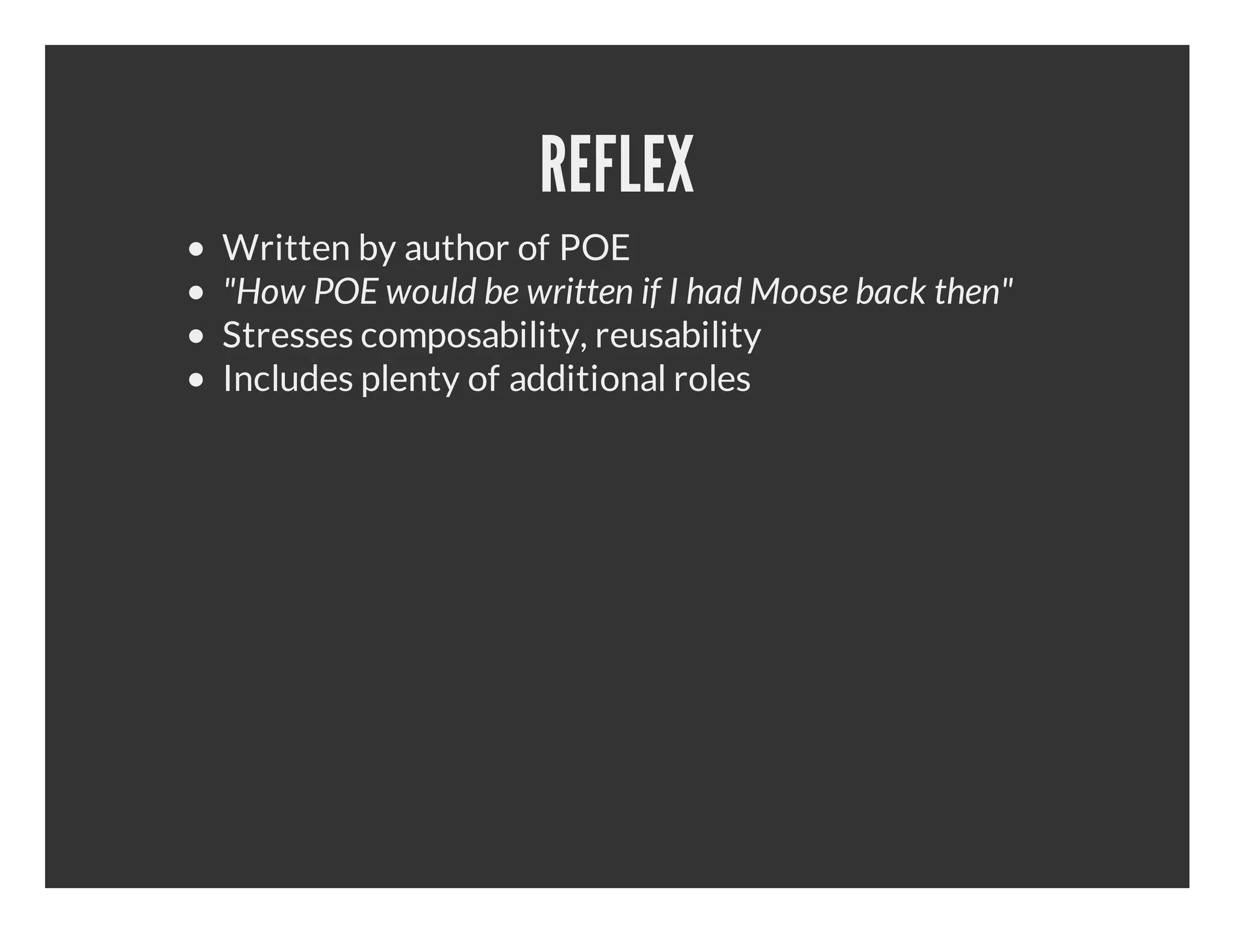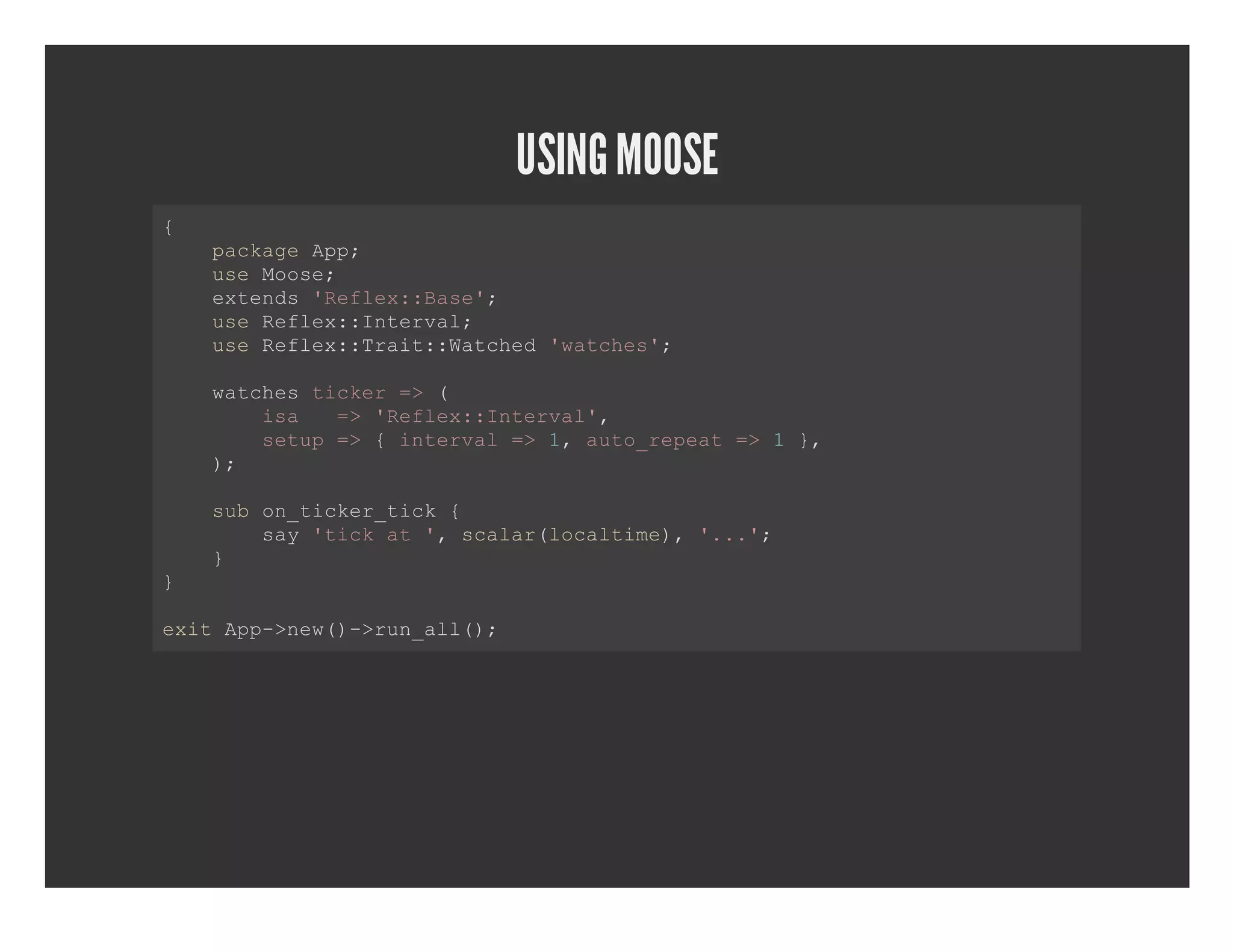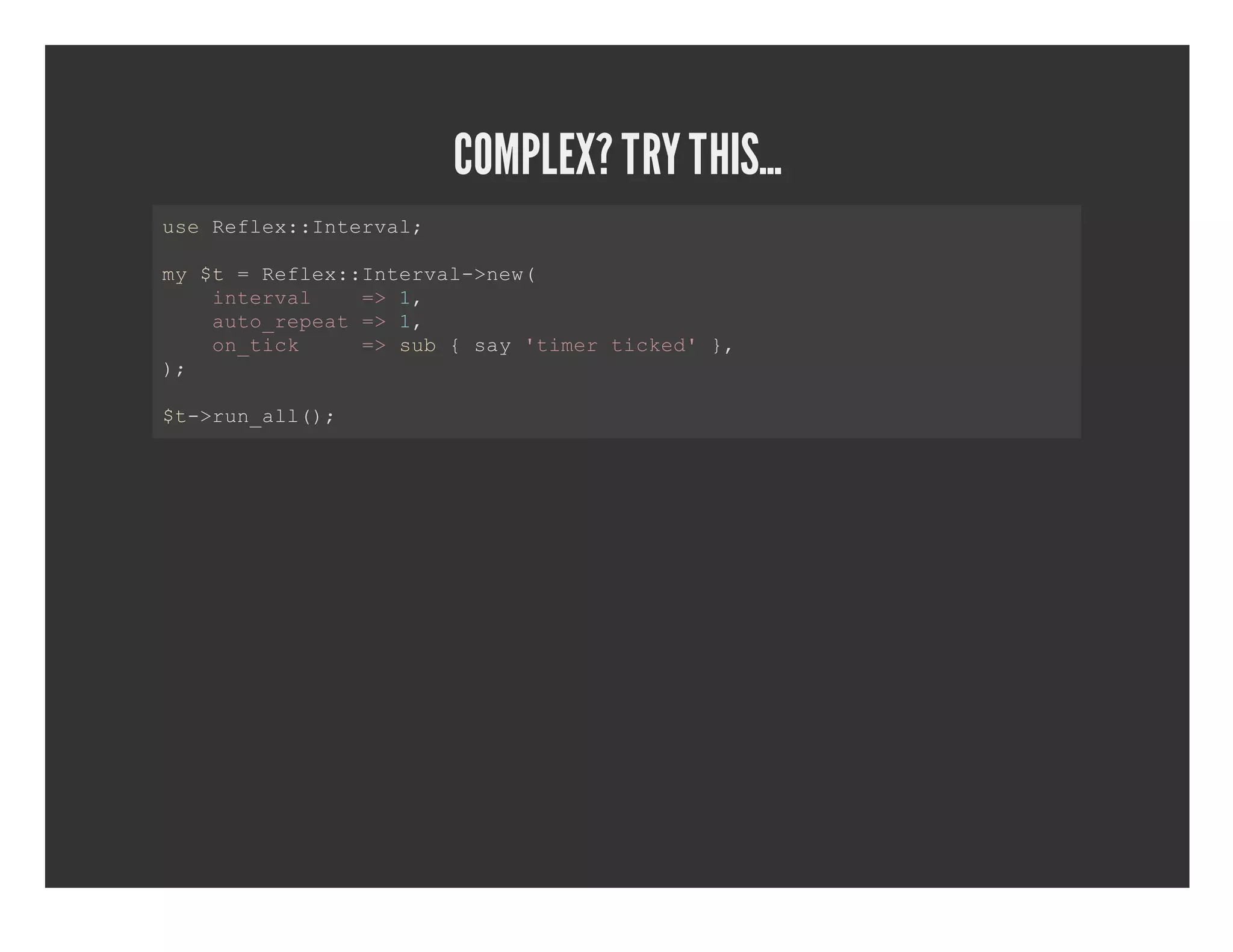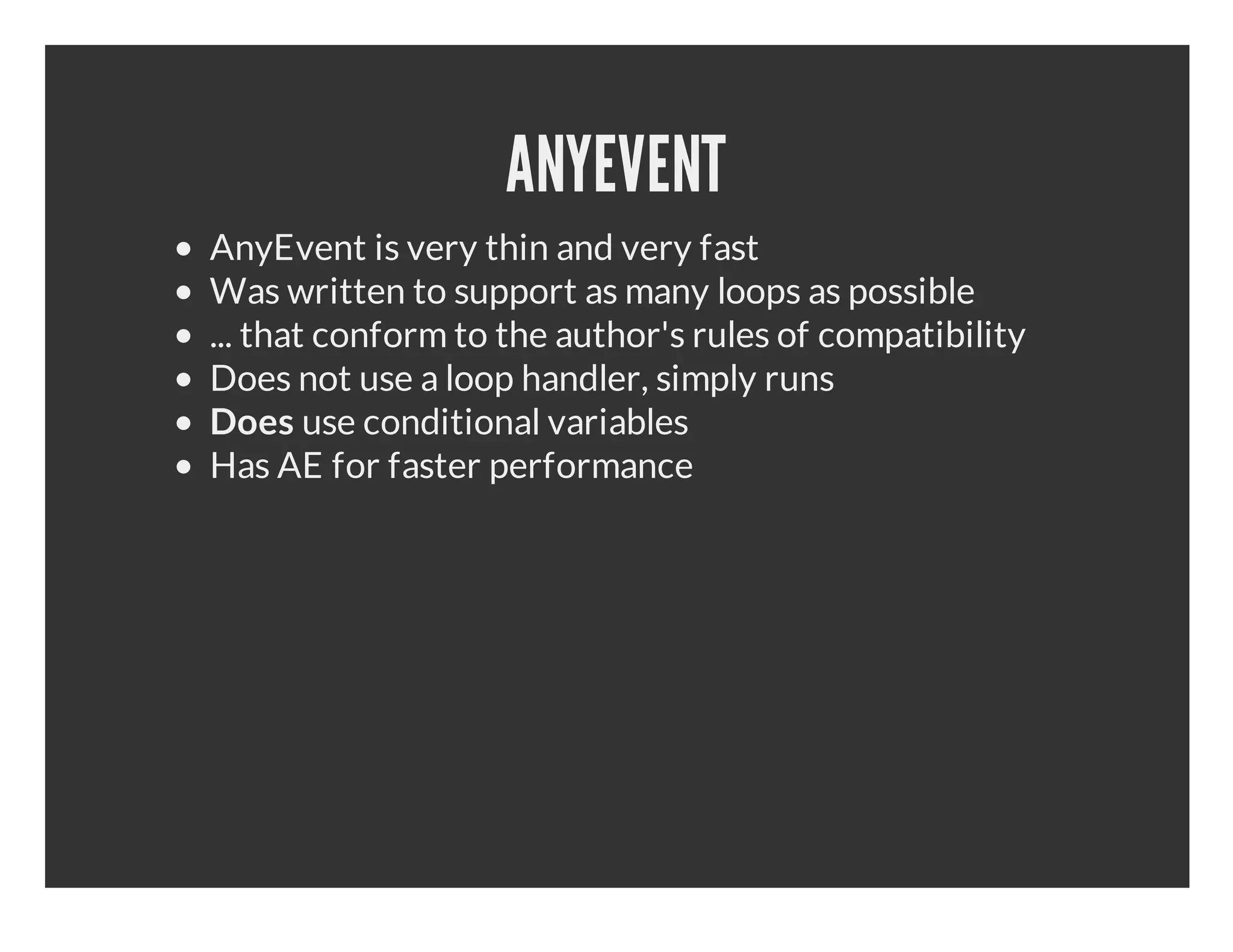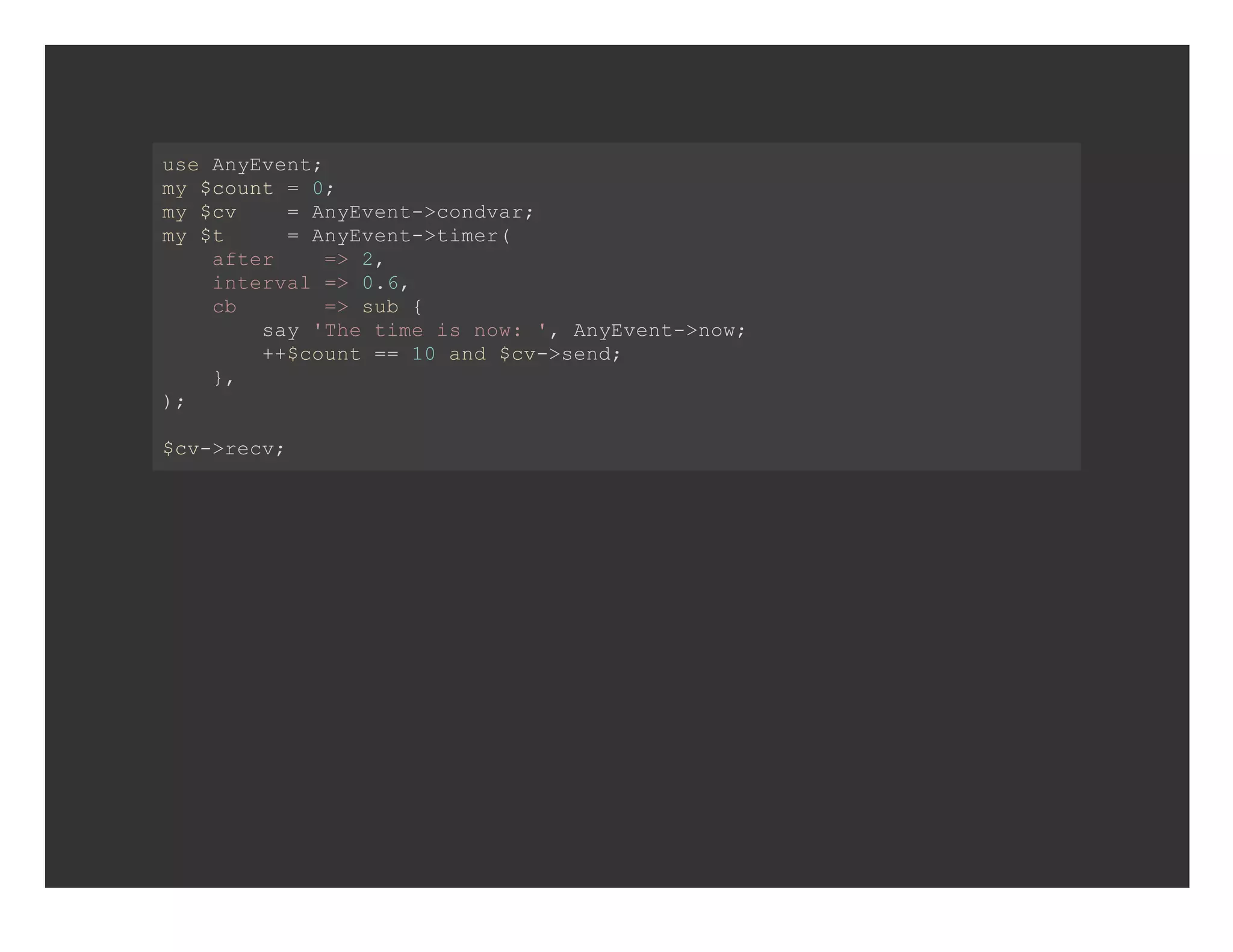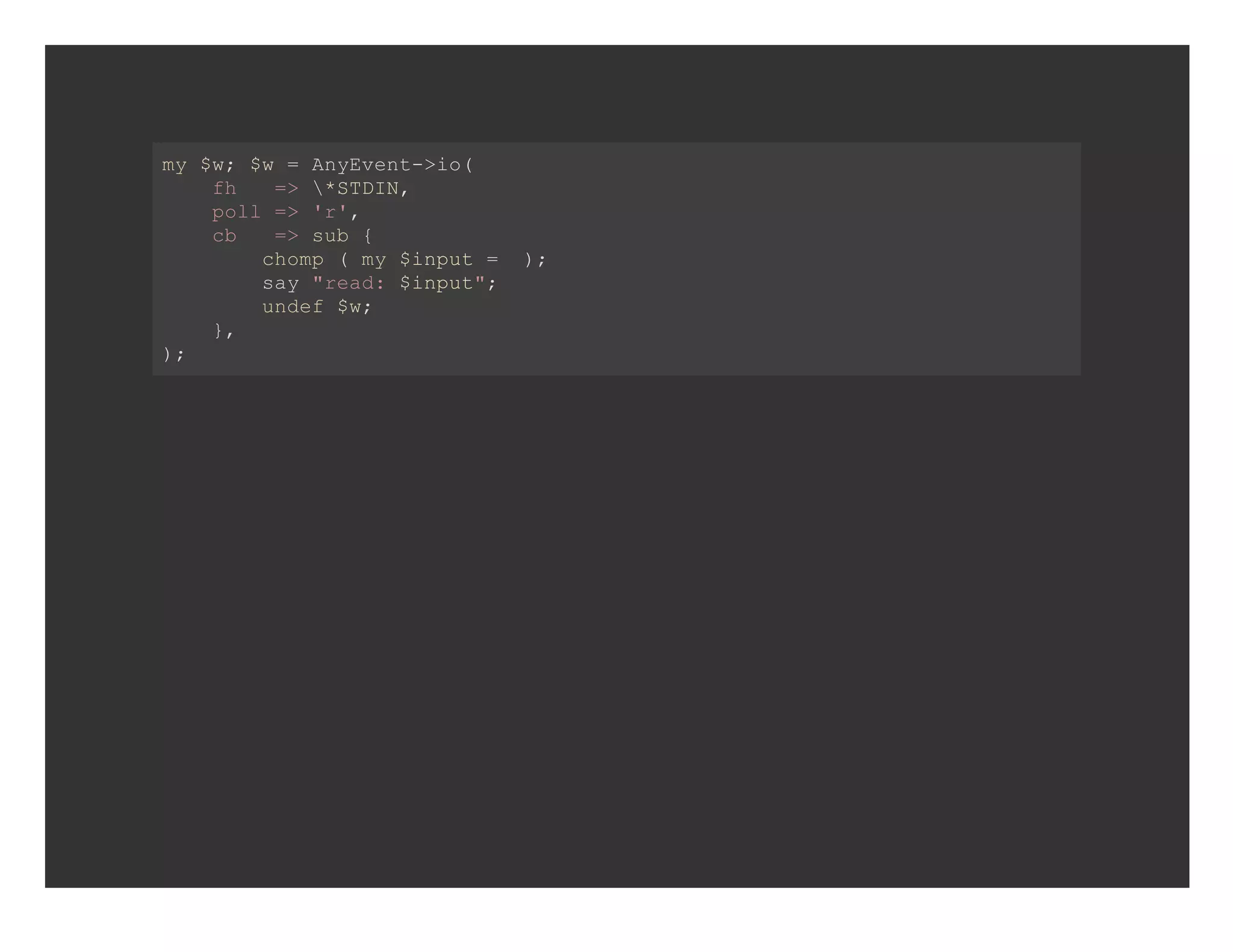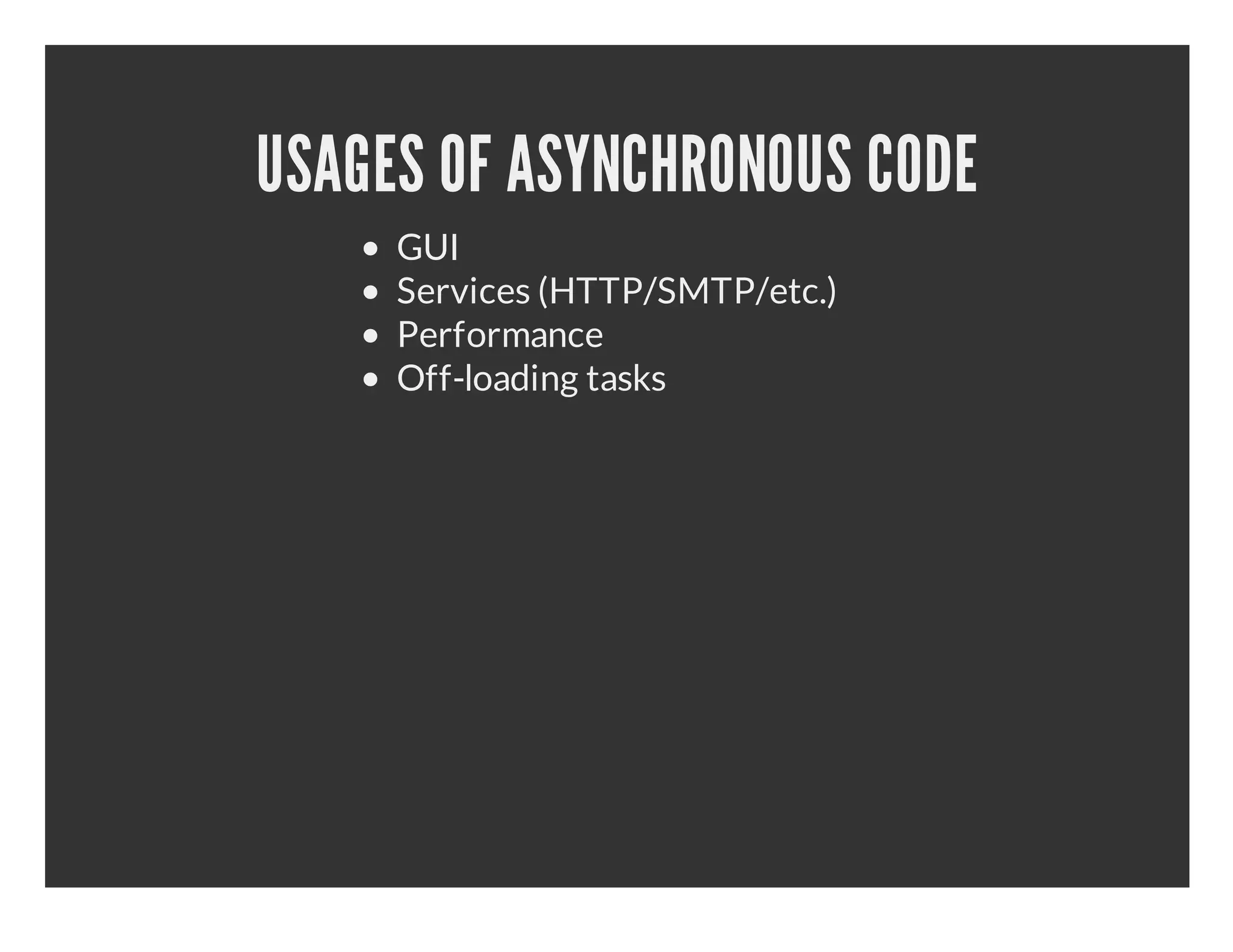This document discusses asynchronous programming and provides examples using various asynchronous programming models in Perl, including IO::Async, POE, and callbacks. It illustrates how asynchronous programming allows for control by other processes, asynchronous code, and event-driven programming. Examples show setting up asynchronous HTTP requests using IO::Async and running sessions and events in POE.
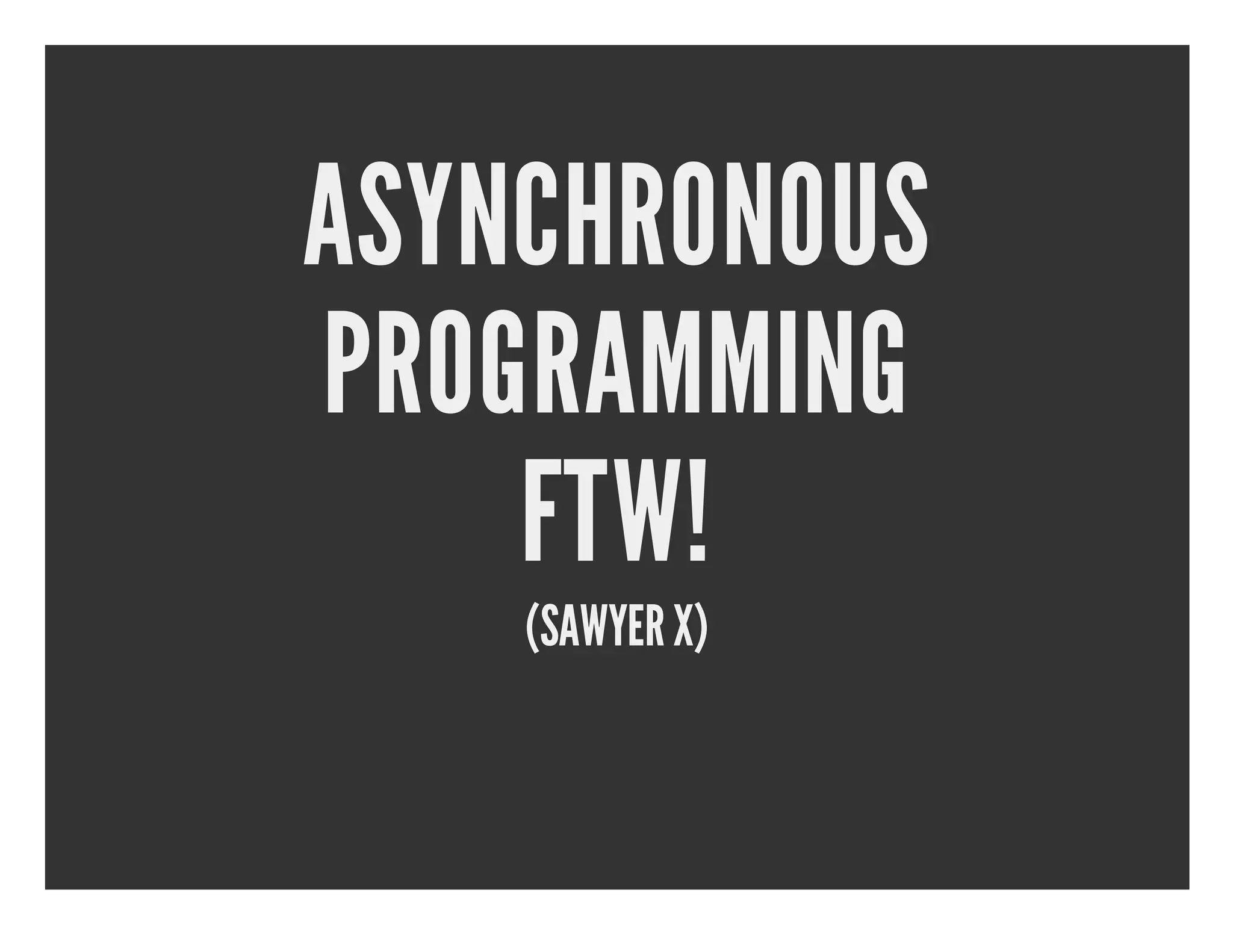

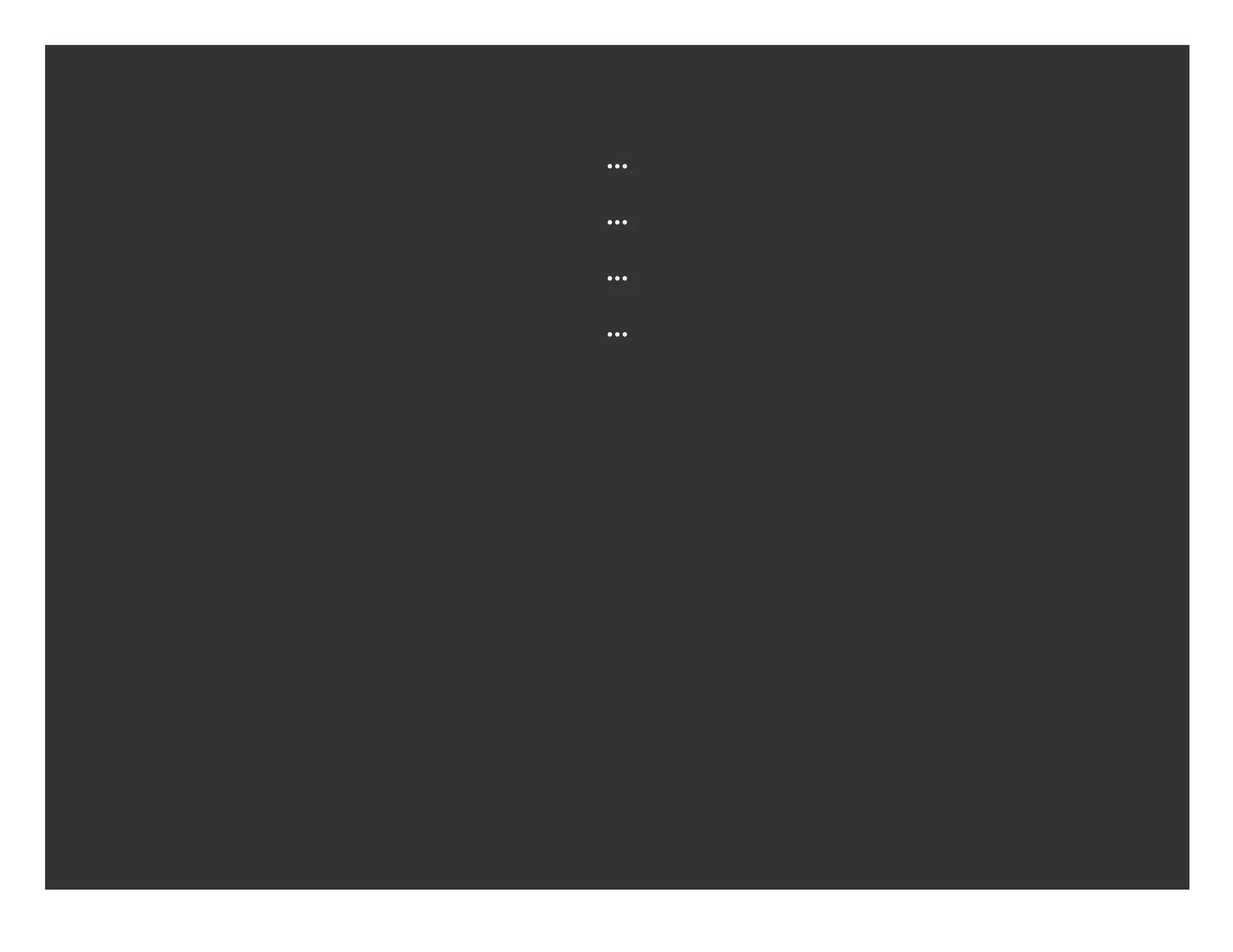


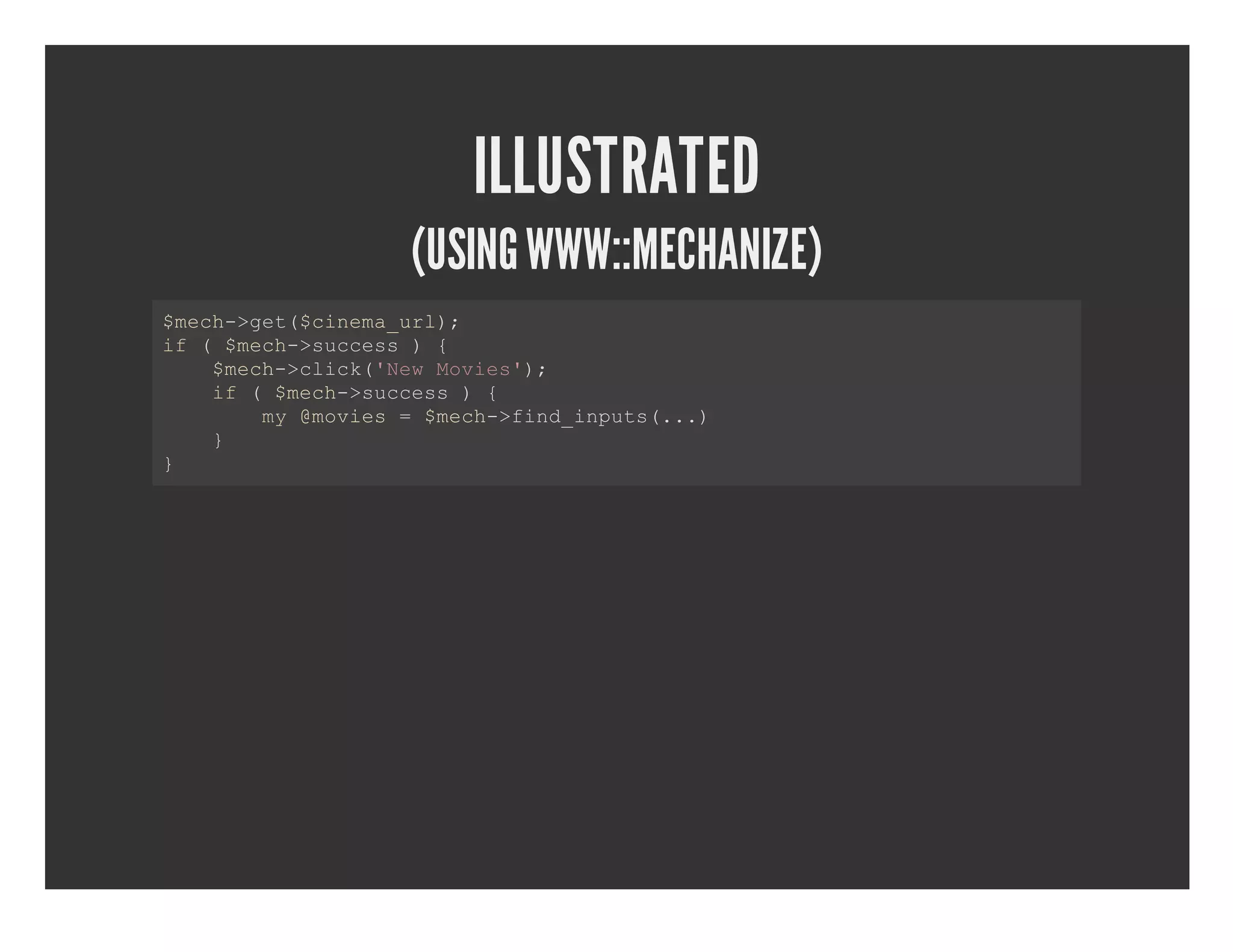



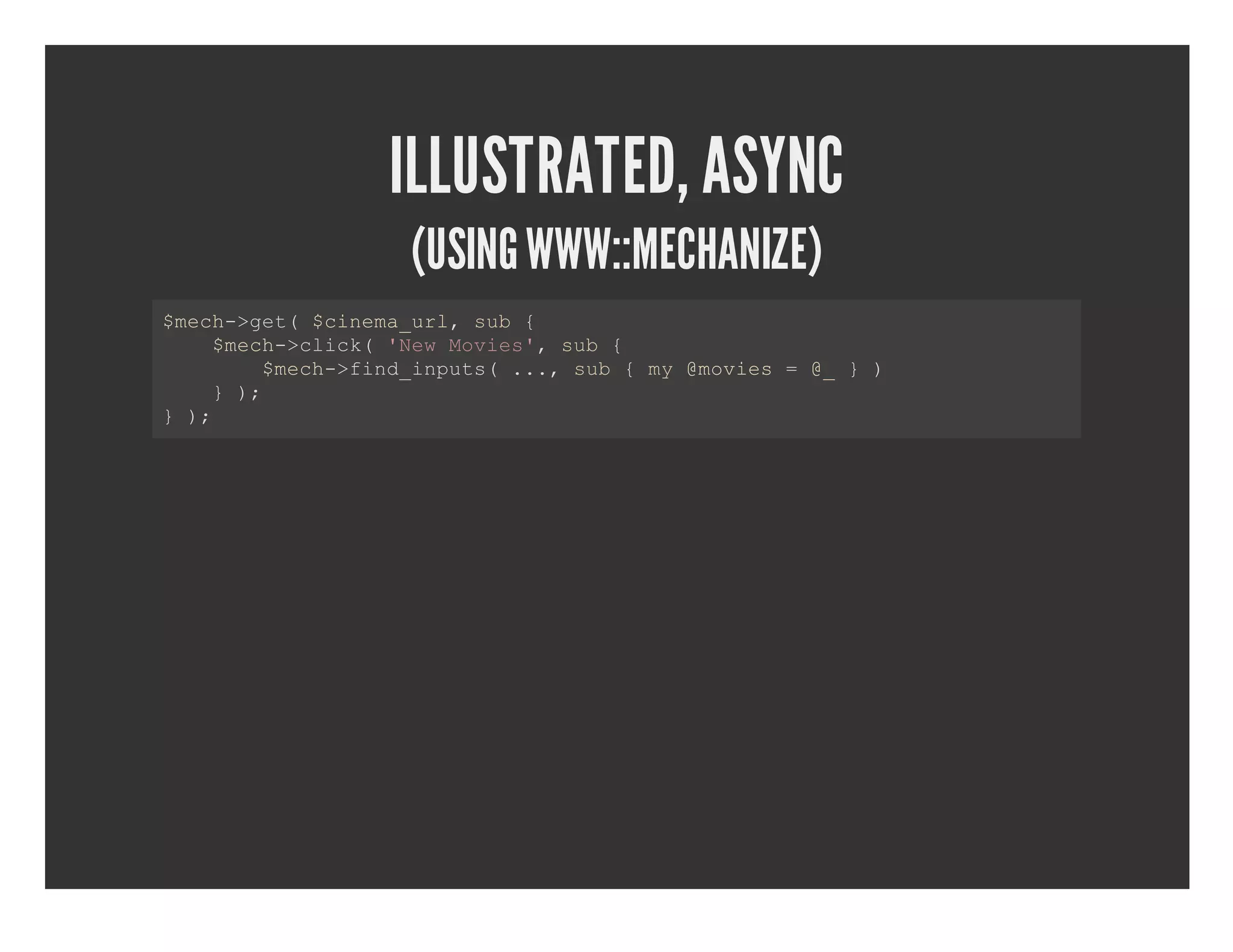

![m jn uo>e( y$uo=Jnnw hss >[w11112222] ot = q<... ...>, cek >{ hcs= Fig= Pn >{ o_ucs >sb{ nsces= u m jn,$ot dt _ y($uo hs,$aa)=@; m i,$os ag)=$uo>nlz_igrsl( y($p ls,$v jnaayepn_eut $aa>'ter} dt{sdr', ) ; $ef>e_ot hs,$v ; slsths($ot ag) } , o_al= u nfi >sb{ m jn,$ot)=@; y($uo hs _ $ef>eeehs(hs) sldlt_ot$ot; } , } } );](https://image.slidesharecdn.com/async-ftw-121006073203-phpapp01/75/Asynchronous-programming-FTW-12-2048.jpg)

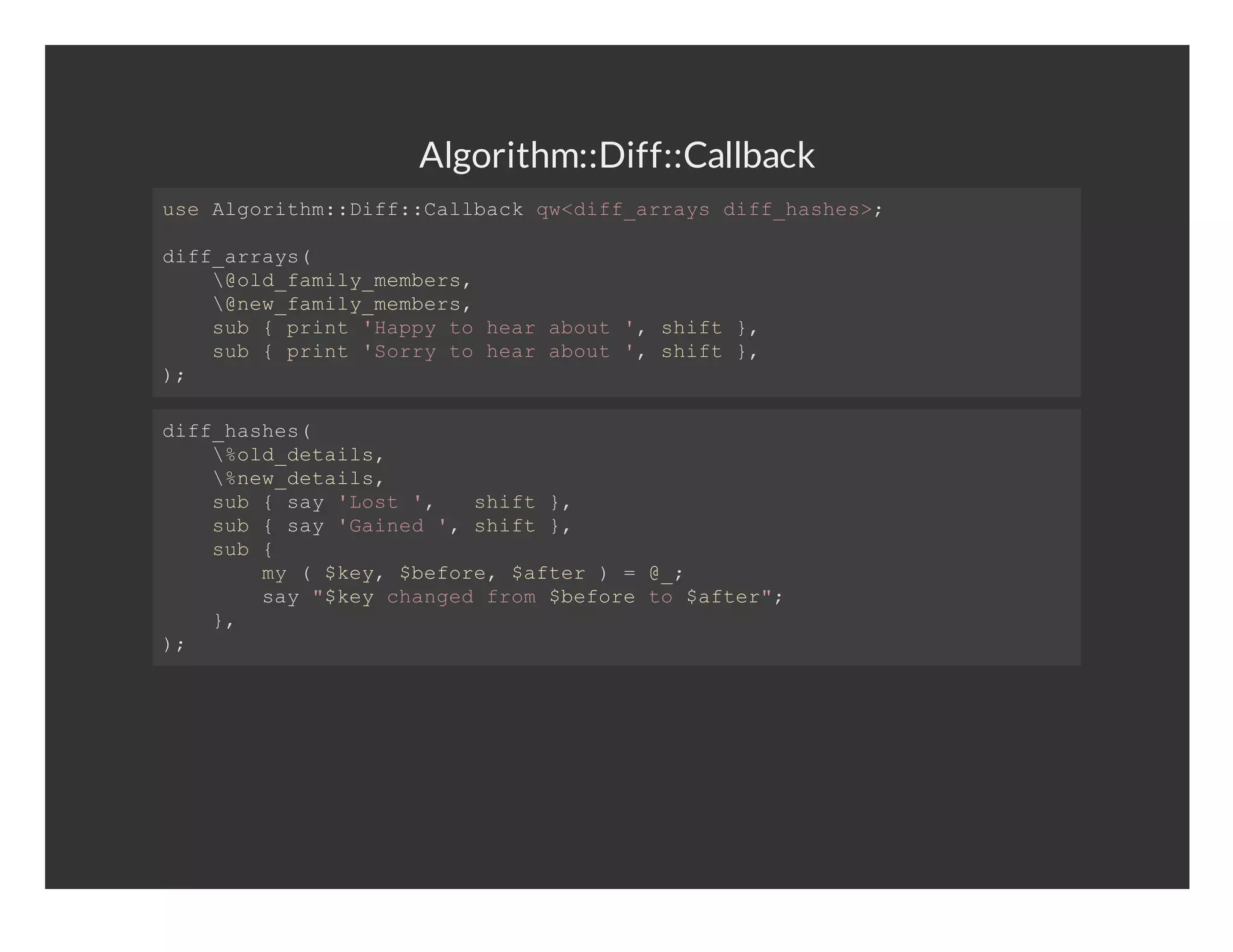
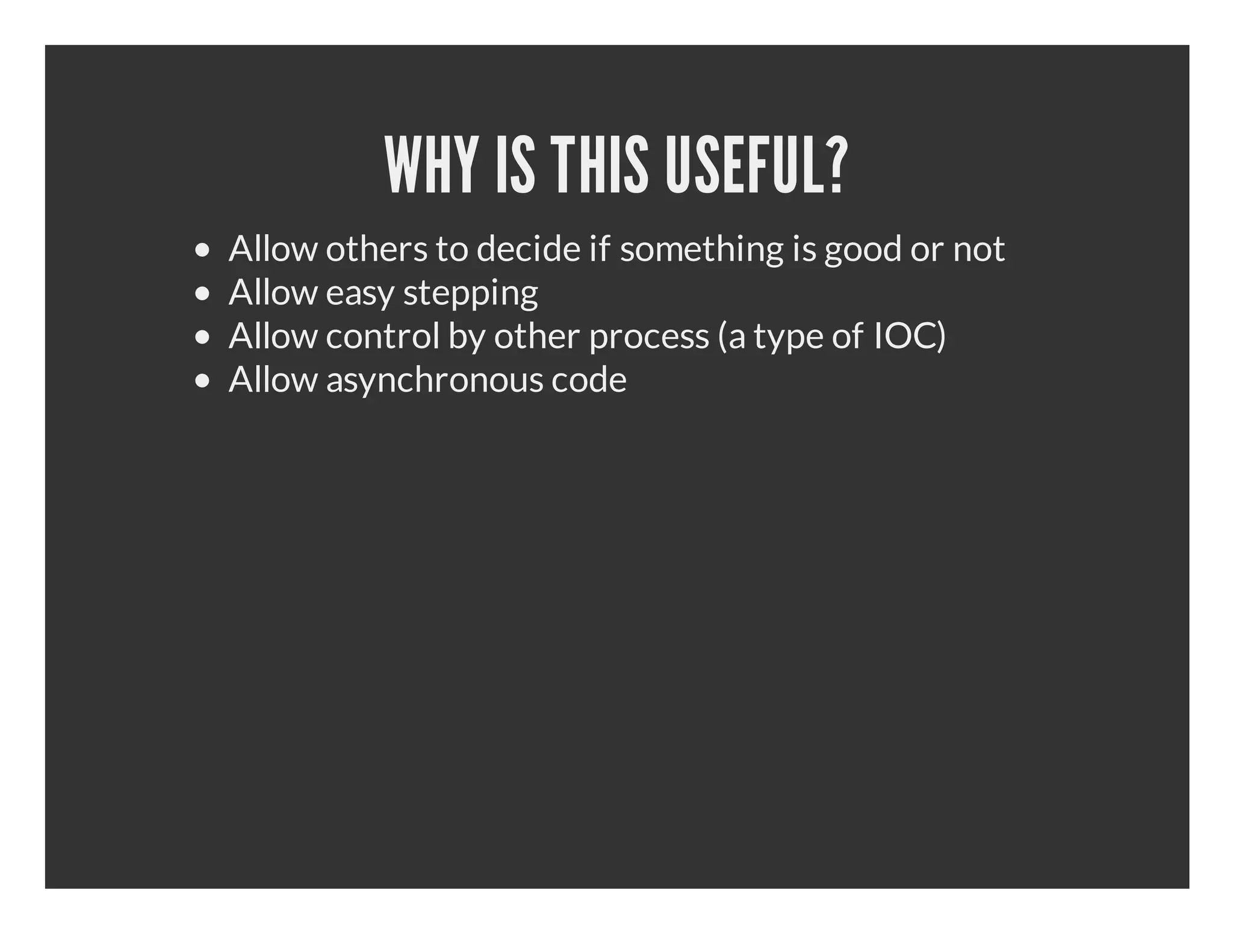
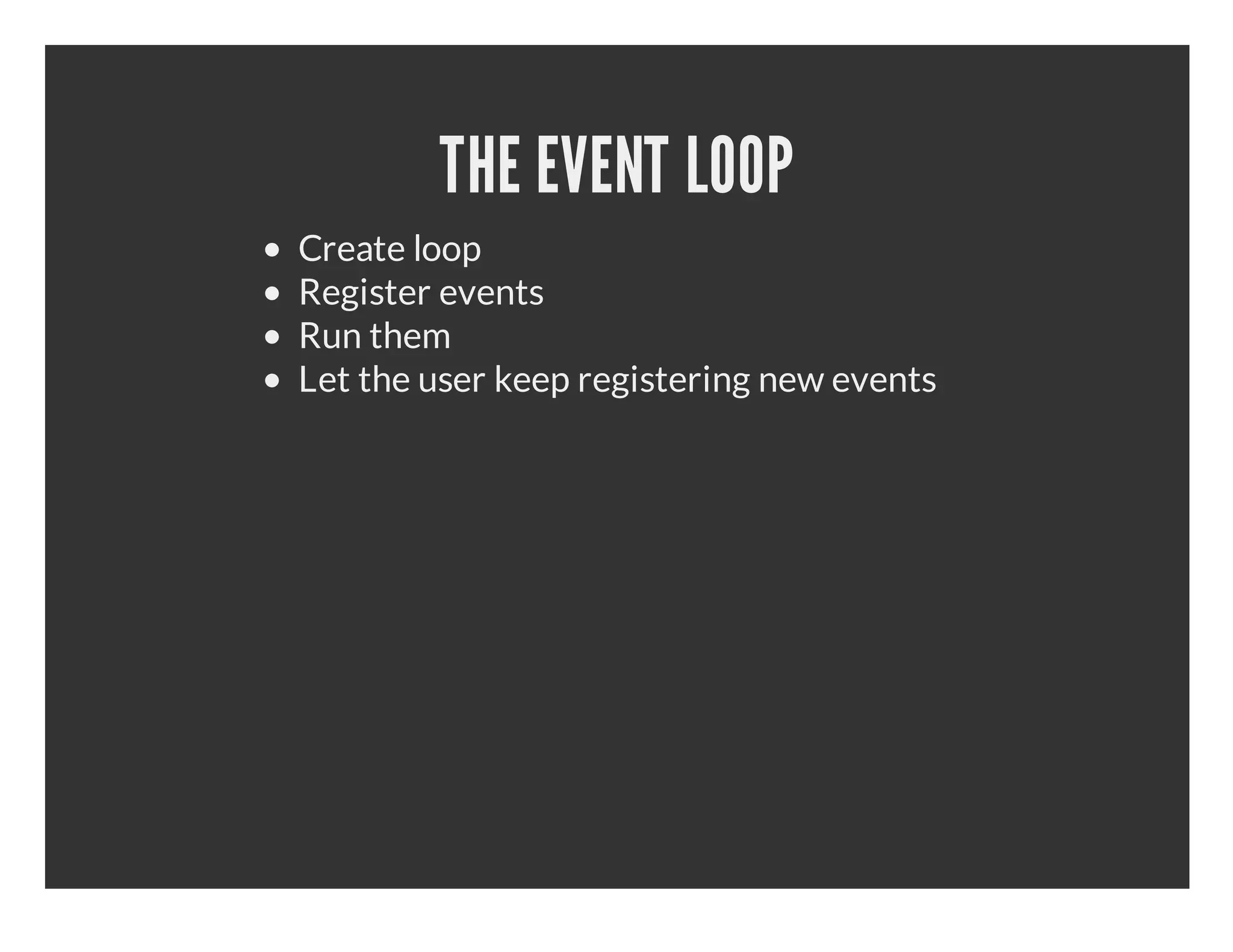
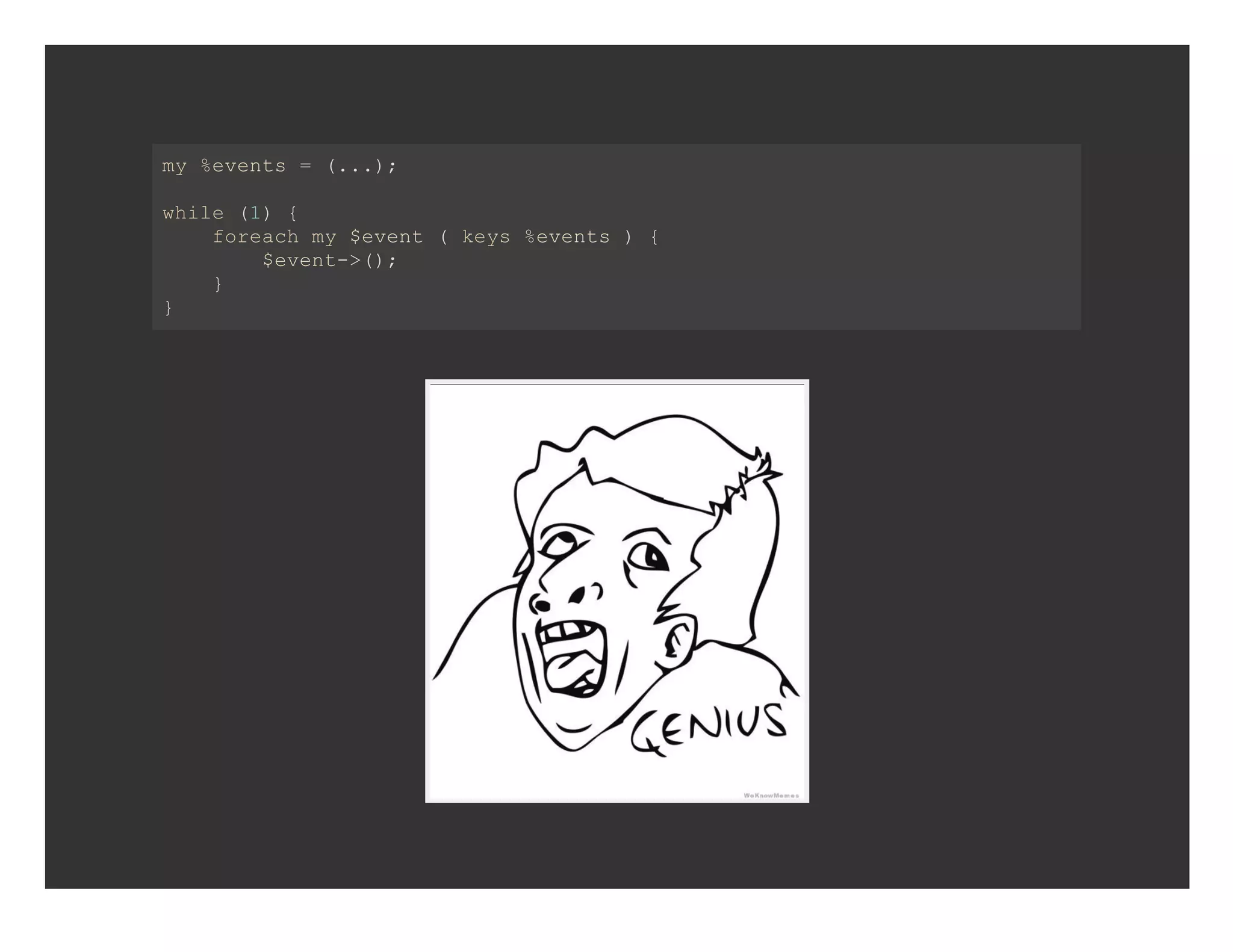
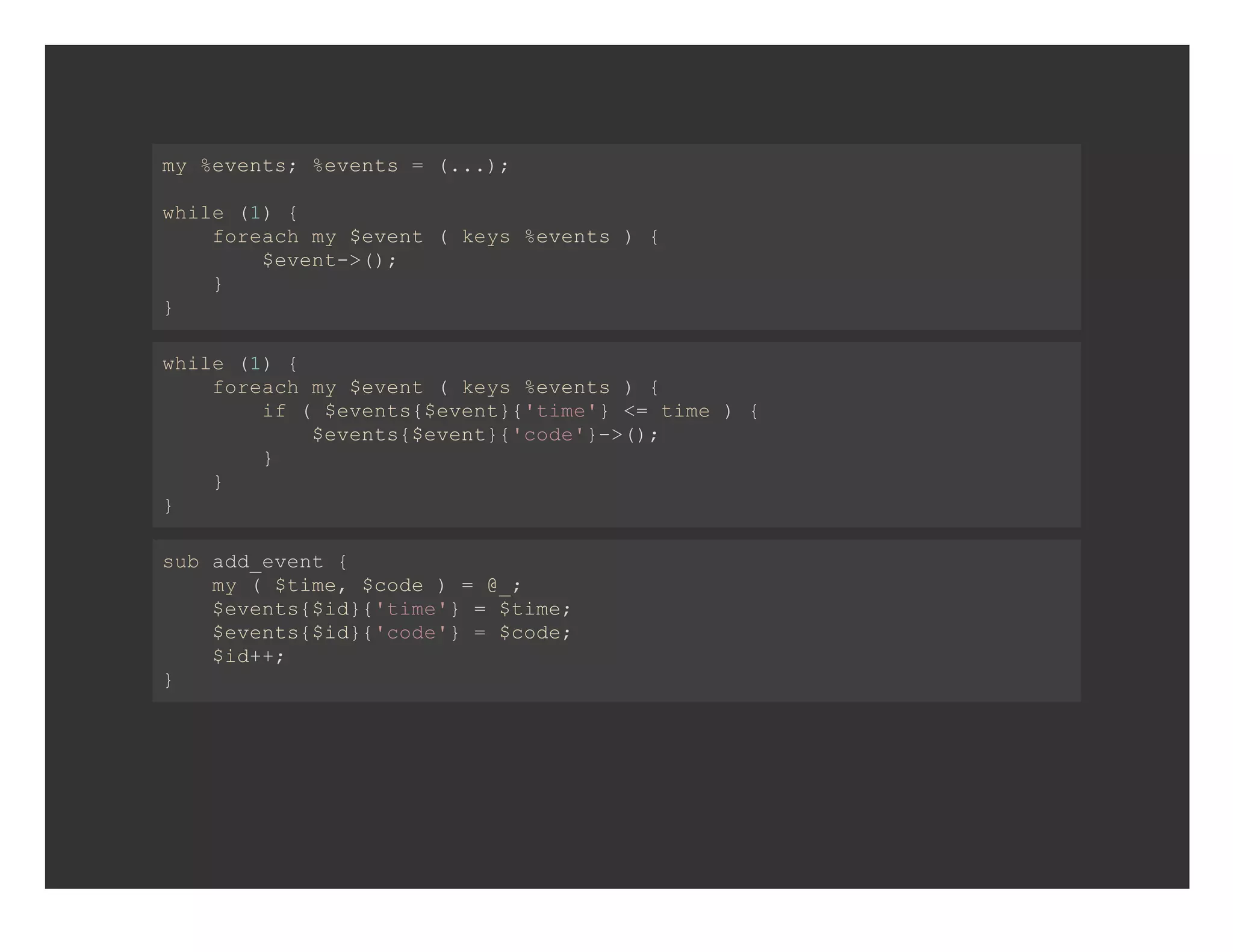
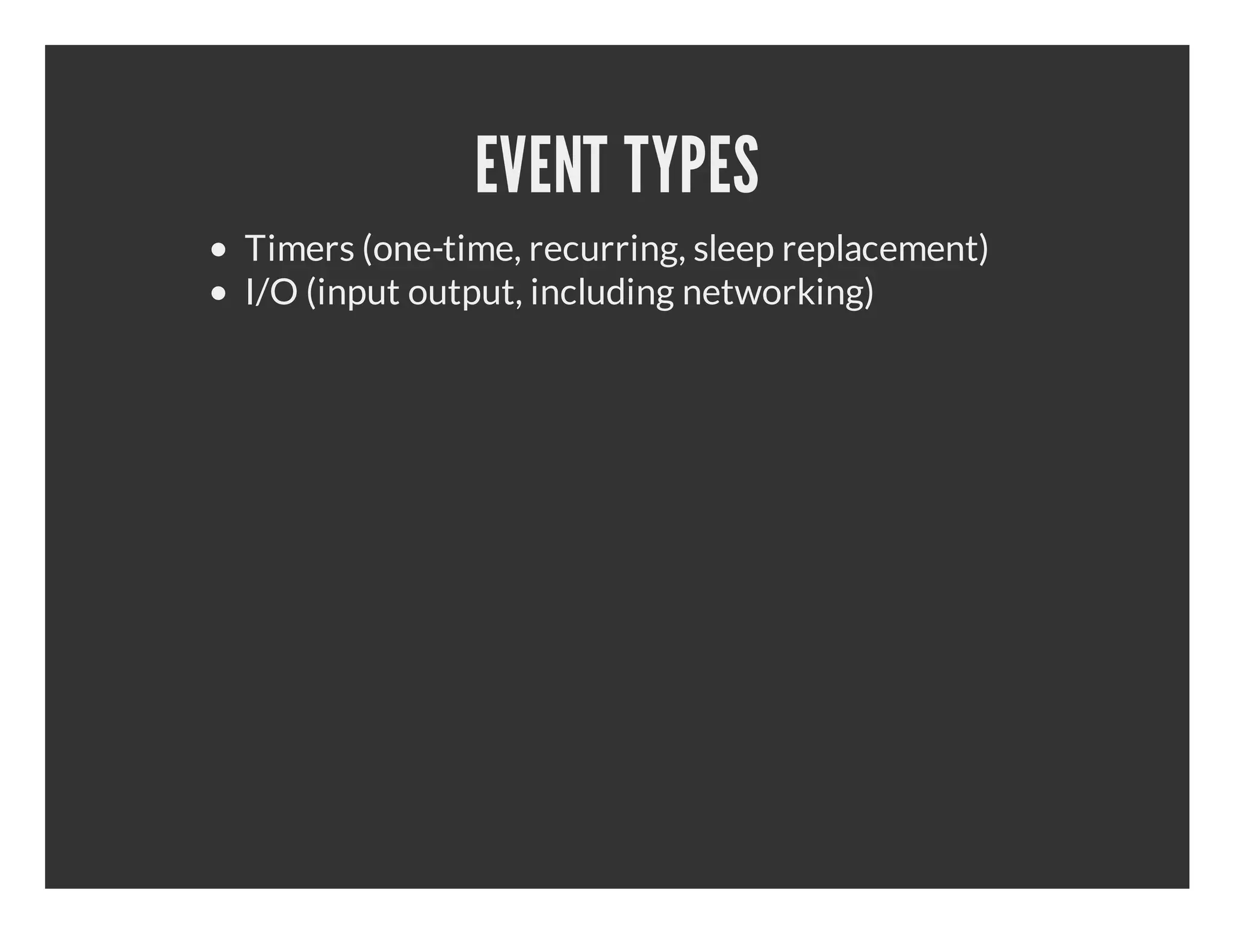

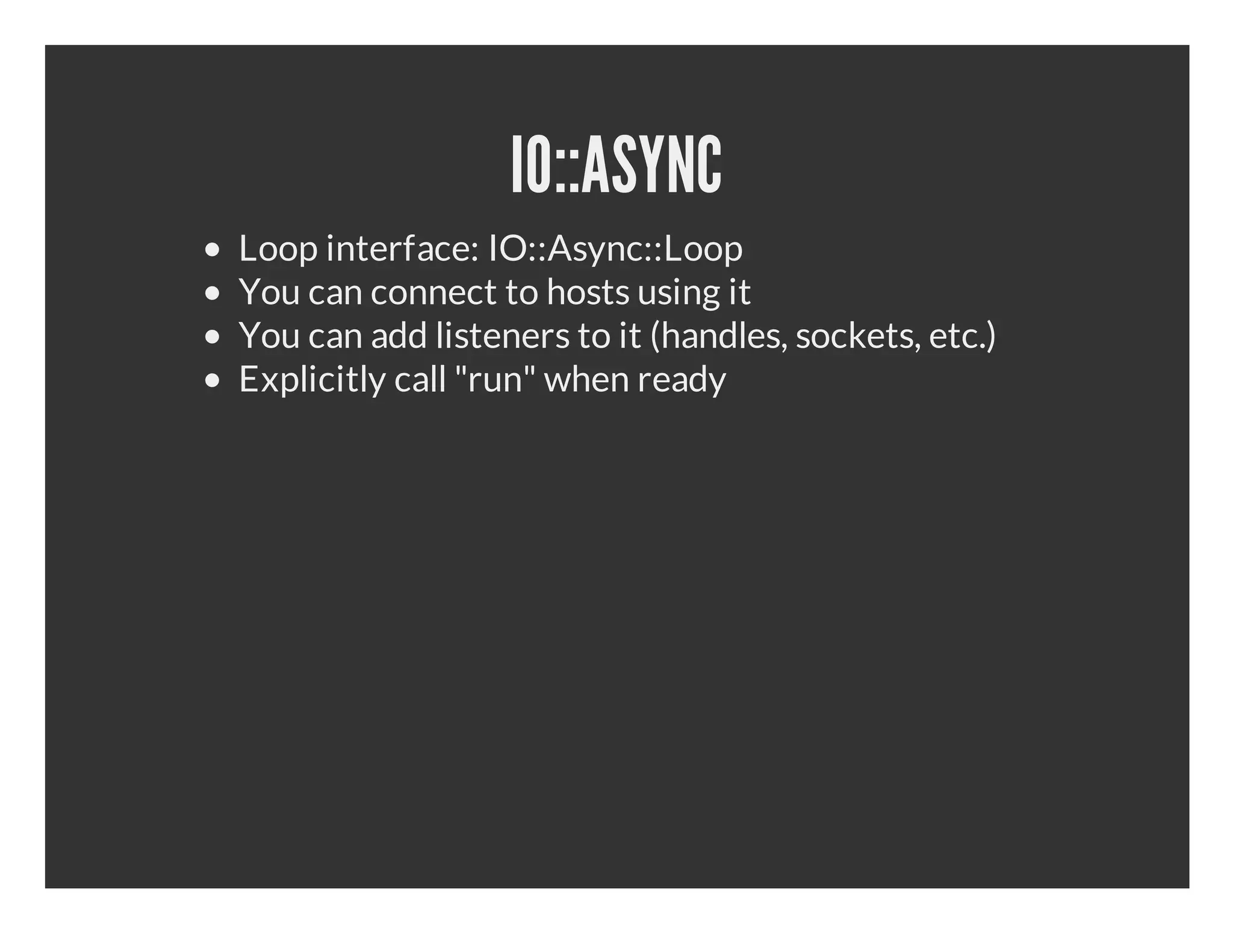
![ueI:Ayc:tem s O:sn:Sra; ueI:Ayc:op s O:sn:Lo; m lo O:sn:Lonw y$op=I:Ayc:op>e; $op>onc( locnet hs = sm.te.ot, ot >"oeohrhs" srie = 24, evc >135 sctp = sra' okye >'tem, o_tem= u . , nsra >sb{..} o_eov_ro >sb{ nrsleerr= u de"antrsle$[1" i Cno eov _] } , o_onc_ro >sb{ ncneterr= u de"antcnet$[]fie _] i Cno onc _0 ald$[1" } , ); $op>u; lorn](https://image.slidesharecdn.com/async-ftw-121006073203-phpapp01/75/Asynchronous-programming-FTW-22-2048.jpg)
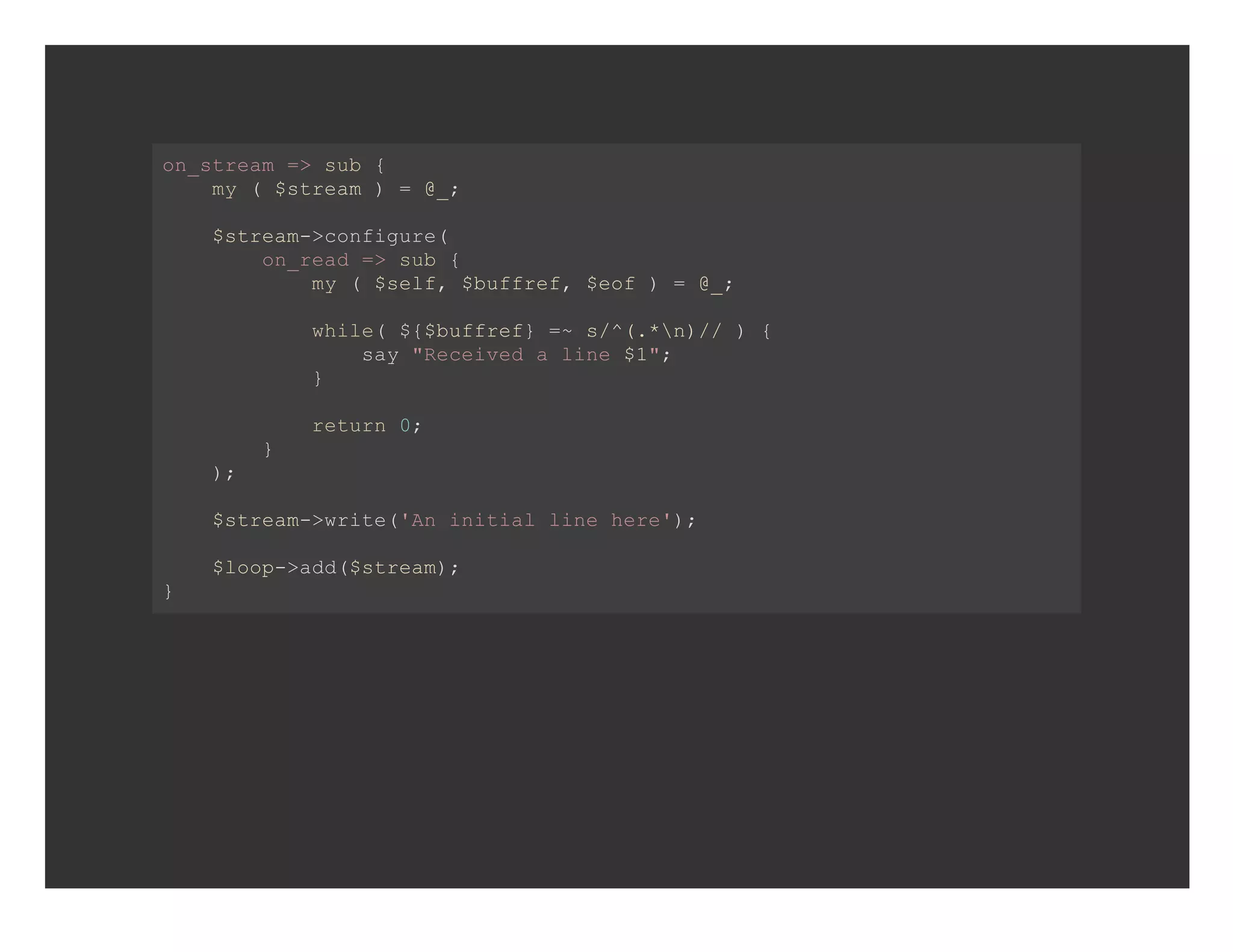
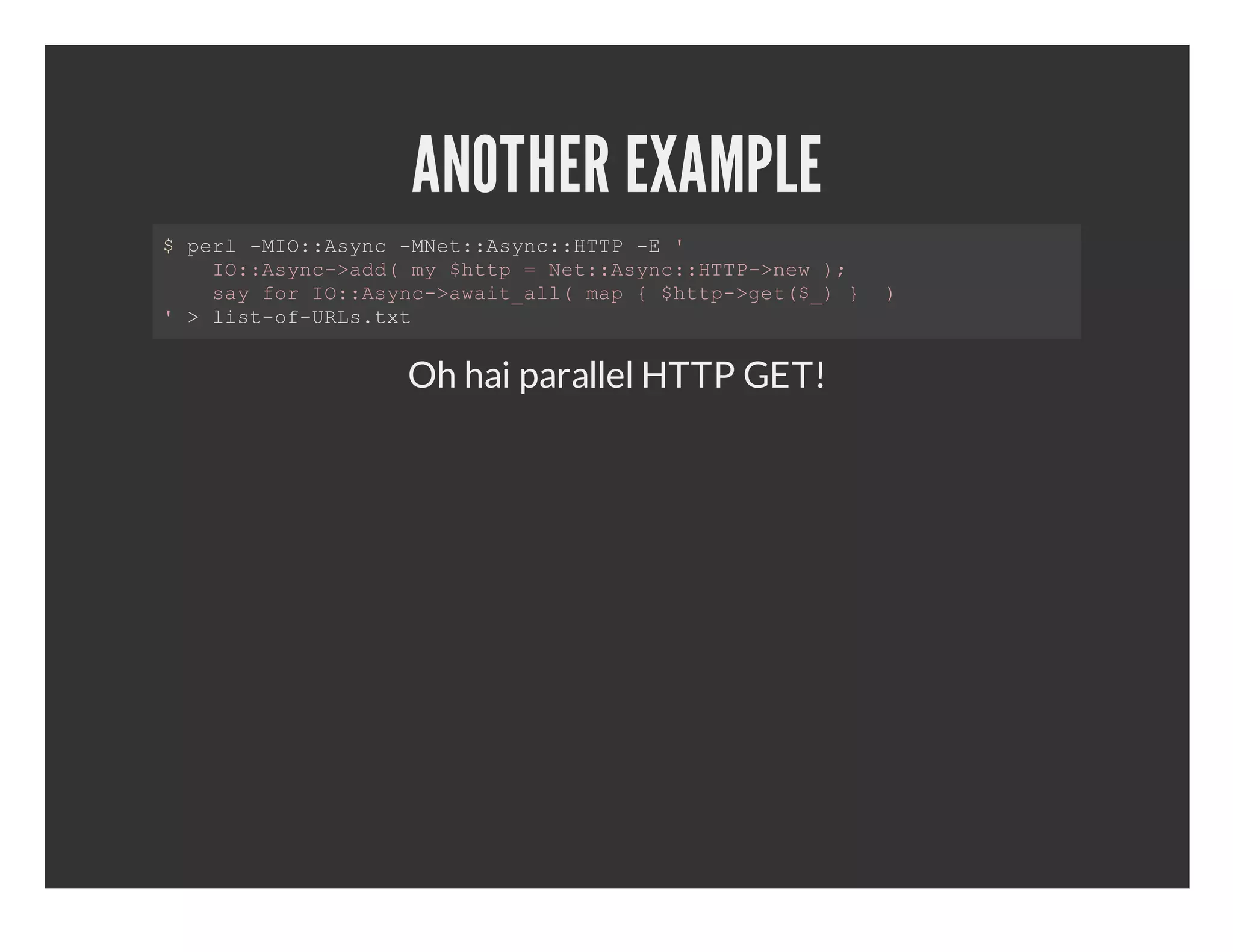
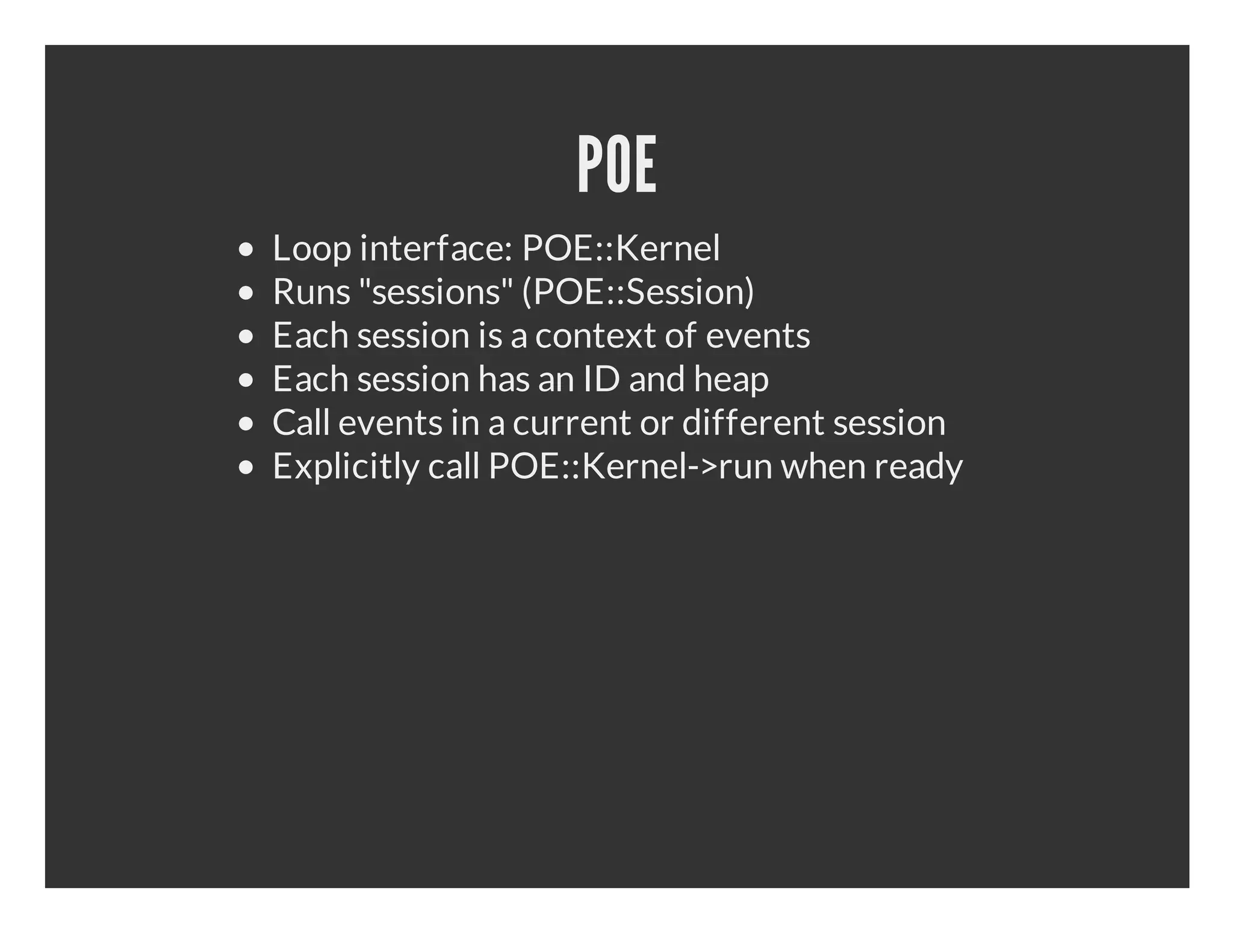
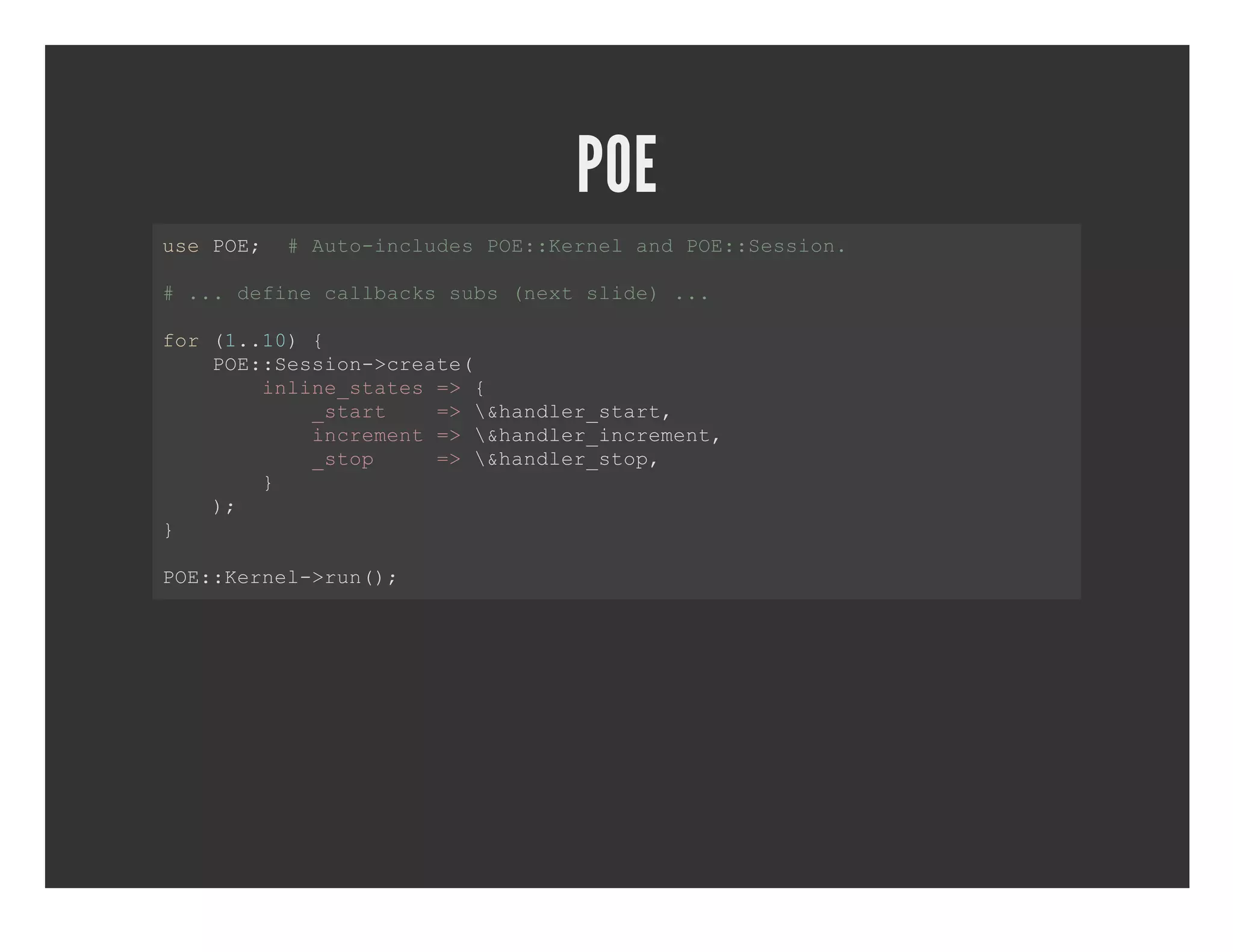
![sbhnlrsat{ u ade_tr m kre,$ep ssin)=@[KRE,HA,SSIN] y($enl ha,$eso _ ENL EP ESO ; sy"eso ,$esoI,"hssatd; a Ssin" ssin>D a tre" $ep>'on' ; ha{cut}=0 $enl>il(iceet) kreyed'nrmn'; } sbhnlriceet{ u ade_nrmn m kre,$ep ssin)=@[KRE,HA,SSIN] y($enl ha,$eso _ ENL EP ESO ; sy"eso ,$esoI,"cutdt ,+$ep>'on'; a Ssin" ssin>D one o" +ha{cut} $enl>il(iceet)i ha{cut}<1; kreyed'nrmn' f$ep>'on' 0 } sbhnlrso u ade_tp{ sy"eso ,$[ESO]>D a tpe" a Ssin" _SSINI,"hssopd; }](https://image.slidesharecdn.com/async-ftw-121006073203-phpapp01/75/Asynchronous-programming-FTW-27-2048.jpg)
![sbhnlrsat{ u ade_tr m kre,$ep ssin)=@[KRE,HA,SSIN] y($enl ha,$eso _ ENL EP ESO ; sy"eso ,$esoI,"hssatd; a Ssin" ssin>D a tre" $ep>'on' ; ha{cut}=0 $enl>il(iceet) kreyed'nrmn'; } sbhnlriceet{ u ade_nrmn m kre,$ep ssin)=@[KRE,HA,SSIN] y($enl ha,$eso _ ENL EP ESO ; sy"eso ,$esoI,"cutdt ,+$ep>'on'; a Ssin" ssin>D one o" +ha{cut} $enl>il(iceet)i ha{cut}<1; kreyed'nrmn' f$ep>'on' 0 } sbhnlrso u ade_tp{ sy"eso ,$[ESO]>D a tpe.n; a Ssin" _SSINI,"hssopd" } fr(.1){ o 1.0 PE:esocet( O:Ssin>rae iln_tts= niesae >{ _tr = &ade_tr, sat >hnlrsat iceet= &ade_nrmn, nrmn >hnlriceet _tp = &ade_tp so >hnlrso, } ) ; } PE:enl>u(; O:Krern)](https://image.slidesharecdn.com/async-ftw-121006073203-phpapp01/75/Asynchronous-programming-FTW-28-2048.jpg)
![MORE CONDENSED uePE s O; fr(.1){ o 1.0 m cut=0 y$on ; PE:esocet( O:Ssin>rae iln_tts= niesae >{ _tr = u sat >sb{ sy"eso ,$[ESO]>D a tre" a Ssin" _SSINI,"hssatd; PE:enl>il(iceet) O:Kreyed'nrmn'; } , iceet= u nrmn >sb{ PE:enl>il(iceet)i +cut<1; O:Kreyed'nrmn' f+$on 0 sy"eso ,$[ESO]>D one o$on" a Ssin" _SSINI,"cutdt cut; } , _tp = u so >sb{ sy"eso ,$[ESO]>D a tpe" a Ssin" _SSINI,"hssopd; } , } ) ; } PE:enl>u(; O:Krern)](https://image.slidesharecdn.com/async-ftw-121006073203-phpapp01/75/Asynchronous-programming-FTW-29-2048.jpg)
